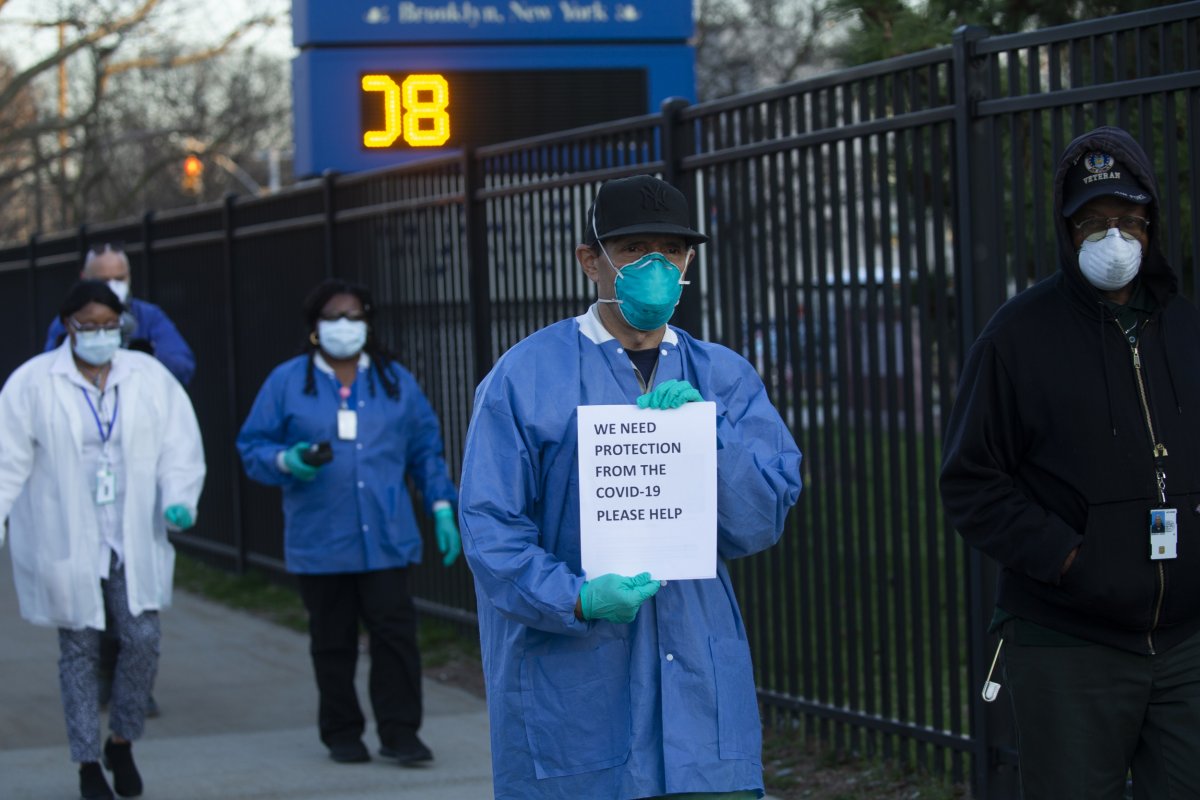I am sitting perfectly still in my bedroom right now, writing to you with just the darting of my pupils. The only noise in my room is the rhythmic pulsing of my ventilator, pushing air into and out of my lungs. Keeping me alive.
I'm scared of getting COVID-19. I'm almost completely paralyzed, and I depend on six fantastic caregivers to get me through my days. Like millions of disabled Americans, I rely on direct support professionals to help me with daily life. They lift me out of bed, shower me, get me dressed and fed, help me to use the bathroom, and about once every hour, they use an electric motor pump to suction my lungs and trachea so that I can keep breathing, with the help of a ventilator that's connected to a hole in my neck.
This routine obviously involves a lot of touching. Some of my caregivers work in the local hospital or nursing homes, or have kids. I think it's likely that one of them will eventually become infected with the coronavirus, which means I probably will too, and I assume that getting sick will be miserable.
What's sad is that it doesn't have to be this way. It's unconscionable that due to a total failure of leadership from the Trump administration, our nation finds itself with a dire shortage of not only tests but also vital personal protective equipment for health care workers across the country. That failure is endangering the lives of nurses across the country. In New York City, 48-year-old Kious Jordan Kelly died after contracting the coronavirus while caring for patients at Mount Sinai West, where his colleagues reported a devastating lack of protective clothing and masks.
The biggest factories in the country could be doing nothing but churning out masks, gloves, face shields and coveralls to supply desperately needed protection, but President Donald Trump has so far failed to use his full authority under the Defense Production Act to order that—seemingly just because he wants to placate the CEOs of massive corporations.
Yet we haven't talked enough about what the lack of testing and protective equipment has meant for front-line health care workers. We now know that roughly 25 percent of people who get coronavirus show no symptoms but can still unknowingly spread the highly infectious disease to others. We also know that because of our extreme scarcity of testing, only those with serious symptoms are able to get tested in most places. Throw in the widespread lack of personal protective equipment for health care workers, and the picture quickly gets grim.
What it means is that right now, there are doctors and nurses in hospitals across America, without symptoms or with only mild ones, who can't get tested and who have no real access to the kind of equipment that stops disease transmission—N95 masks, coveralls and gloves. It's a disaster that puts health care workers at risk and maximizes transmission in hospitals as a whole.
We have to do better, because this is both a moral question and a matter of public health. Health care providers on the front lines of this crisis, disproportionately women, are risking their health every day to care for the rest of us, and the lack of protective equipment makes that risk a lot worse.
The lack of testing for health care workers almost certainly ensures they are unwittingly transmitting the disease to their colleagues, patients and the public.

Although Trump has "invoked" the Defense Production Act, he has not implemented it in an "all hands on deck" fashion to make sure this nation is producing as much protective equipment as it possibly can.
The federal government must order all companies that already make this protective equipment to go into overdrive and help other capable companies—as many as necessary—get the tools and training they need to transition quickly. Congress must appropriate substantial federal money specifically for hospitals to buy this equipment and pay for the massive surge in staffing that the pandemic demands. And we must ensure that every single medical professional in the country who wants a test can get one.
These common-sense measures backed by Defense Production Act would protect not only front-line health care workers but also the rest of us. Big talk is not enough. We need the full weight of America behind this fight.
Ady Barkan is a progressive activist who founded the Be a Hero PAC and built two programs at the Center for Popular Democracy. He graduated from Yale Law School and Columbia College, and lives with his wife and their young son in Santa Barbara, California. Barkan's book, Eyes to the Wind: A Memoir of Love and Death, Hope and Resistance, was published in September by Atria Books.
The views expressed in this article are the writer's own.
Uncommon Knowledge
Newsweek is committed to challenging conventional wisdom and finding connections in the search for common ground.
Newsweek is committed to challenging conventional wisdom and finding connections in the search for common ground.
About the writer
To read how Newsweek uses AI as a newsroom tool, Click here.








